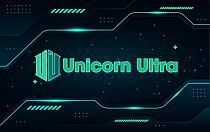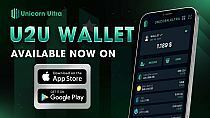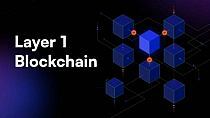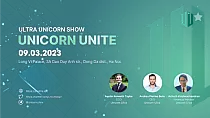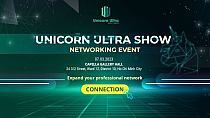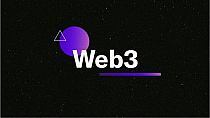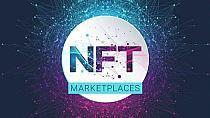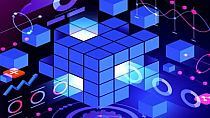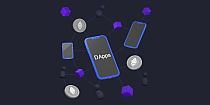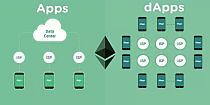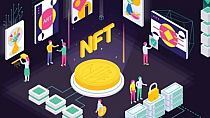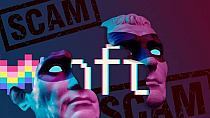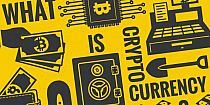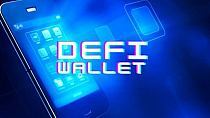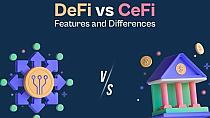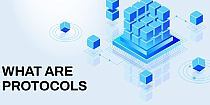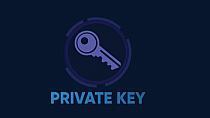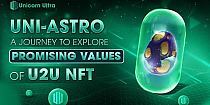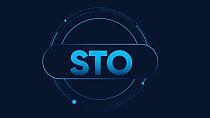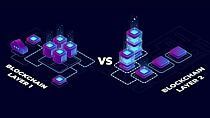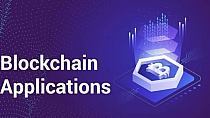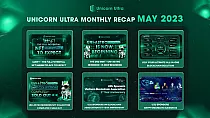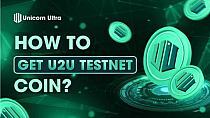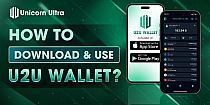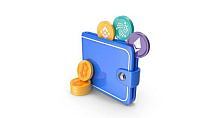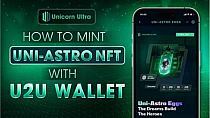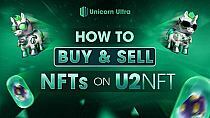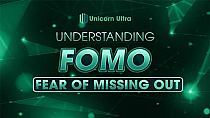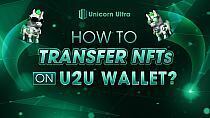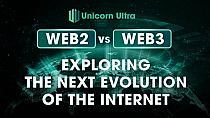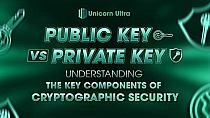-
Inspiracje
- Najnowsze
- Najpopularniejsze
- Zaskocz mnie
- Obserwowane
- MAGazyn
- Moda damska
- DIY - zrób to sam
- Kuchnia
- Uroda
- Wnętrza
- Humor
- Ogród
- Ślub
- Architektura
- Biżuteria
- Design
- Dziecko
- Film
- Fotografia
- Gadżety
- Historia
- Hobby
- Inne
- Książka
- Moda męska
- Muzyka
- Nauka i natura
- Plakaty i obrazy
- Podróże i miejsca
- Samochody i motocykle
- Sport i fitness
- Święta i uroczystości
- Tatuaż
- Zwierzęta
- Partnerzy
- KONKURS
-
Zakupy
-
ONA
- Ubrania
- Bielizna
- Bluzki
- Bluzy
- Dresy damskie
- Kombinezony
- Koszule
- Koszulki
- Kurtki
- Płaszcze
- Spodnie i leginsy
- Spodnie jeans
- Spódnice
- Stroje kąpielowe
- Sukienki i tuniki
- Swetry
- Szorty
- Zestawy
- Żakiety i kamizelki
- Buty
- Baleriny
- Botki
- Czółenka
- Espadryle
- Glany
- Japonki
- Kalosze
- Klapki
- Koturny
- Kowbojki
- Kozaki
- Obuwie Domowe
- Półbuty
- Sandały
- Sportowe i lifestyle
- Szpilki
- Tenisówki i Trampki
- Trapery i trekkingi
- Dodatki
- Bransoletki i zawieszki
- Breloki
- Czapki i kapelusze
- Etui
- Kolczyki, nausznice
- Kołnierzyki
- Kosmetyczki
- Naszyjniki, kolie i zawieszki
- Okulary
- Ozdoby do włosów
- Parasole
- Paski
- Pierścionki
- Plecaki
- Portfele
- Rękawiczki
- Skarpety
- Szaliki i chusty
- Torby i torebki
- Walizki
- Zegarki
- Zestawy biżuterii
- Zdrowie i uroda
- Balsamy
- Bazy i podkłady
- Cienie do oczu
- Dezodoranty
- Higiena jamy ustnej
- Korektory
- Kredki
- Kremy i serum
- Lakiery
- Manicure i pedicure
- Maseczki
- Odżywki
- Peeling
- Perfumy i wody perfumowane
- Pielęgnacja po opalaniu
- Płyny żele i mydła
- Pomadki i błyszczyki
- Pudry
- Róże
- Stylizacja włosów
- Szampony
- Toniki i demakijaż
- Tusze
- Wody toaletowe
- Zestawy
-
ON
- Ubrania
- Bielizna
- Bluzy
- Kąpielówki
- Koszule
- Kurtki i płaszcze
- Marynarki kamizeki
- Spodenki i szorty
- Spodnie
- Swetry
- T-shirt długi rękaw
- T-shirt i Polo
- KULTURA
- GADŻETY
- DZIECKO
-
DOM I WNĘTRZE
- Wnętrza
- Akcesoria dom
- Ceramika i szkło
- Do baru
- Do biura
- Do kuchni
- Kubki kufle i kieliszki
- Lustra
- Nakrycia stołu
- Oświetlenie
- Plakaty i tablice
- Pościele, poduszki i nakrycia
- Przechowywanie
- Tekstylia
- Zegary i budziki
-
Marki
- MARKI
- Adidas
- Adriatica
- Alter Core
- Armani
- Asics
- Atlantic
- Azzaro
- Barbie
- Bburago
- Be-U
- Benetton
- Bering
- Black Plum
- Burberry
- Bvlgari
- Cacharel
- Calvin Klein
- Canon
- Carolina Herrera
- Carrera
- Casio
- Celestron
- Chanel
- Chloe
- Clinique
- Cobi
- Coloud
- Converse
- David Beckham
- Davidoff
- Delbana
- Diesel
- Dior
- DISNEY
- DKNY
- Dolce & Gabbana
- DOXA
- Dr. Martens
- Dunhill
- Ecco
- Elizabeth Arden
- Esprit
- EVC DSGN
- Festina
- Fila
- Fisher Price
- Frederique Constant
- Givenchy
- Gucci
- Guerlain
- Guess
- Hasbro
- Helena Rubinstein
- Hermes
- Hi-Tec
- Hugo Boss
- Hunter
- Iceberg
- Ingersoll
- Issey Miyake
- Jean Paul Gaultier
- Jennifer Lopez
- Jil Sander
- Jimmy Choo
- Joop!
- Juicy Couture
- Kappa
- Kenzo
- Komono
- Lacoste
- Lalique
- Lancome
- Lanvin
- Lee
- Lego
- Lorus
- Marc Jacobs
- Marshall
- Masaki Matsushima
- Matchbox
- Mattel
- Max Factor
- Max&Co
- Mc Arthur
- Mizuno
- Mont Blanc
- Moschino
- Mr. Gugu & Miss Go
- My Little Pony
- New Balance
- Nike
- Nikon
- Nina Ricci
- Ninety Eight Clothing
- Nivea
- Nixon
- Nooka
- Obaku
- Onitsuka Tiger
- Paco Rabanne
- Pentax
- Pewex
- Pierre Cardin
- Playboy
- Prada
- Puma
- Ralph Lauren
- Reebok
- Regatta
- Revlon
- Rexona
- Rider
- Salomon
- Salvatore Ferragamo
- Shelyak
- Shiseido
- Skagen
- Swarovski
- Takahashi
- Thierry Mugler
- Timberland
- Timex
- Tommy Hilfiger
- UGC
- Urbanears
- Valentino
- Vans
- Versace
- Viktor & Rolf
- Vixen
- Welly
- William Optics
- Wrangler
- Yimaida
- Yukon
- Yves Saint Laurent
-
ONA
-
Szukaj
- Losuj
Hobby
Unicorn Ultra
What is DAO? Exploring the Power of Decentralized Autonomous Organizations
>>> https://uniultra.xyz/blog/what-is-dao
In recent years, the upward push of blockchain era has given beginning to modern ideas that undertaking conventional centralized systems. One such groundbreaking concept is that of Decentralized Autonomous Organizations (DAOs). DAOs constitute a paradigm shift in the manner we arrange and collaborate, permitting decentralized choice-making and fostering collective ownership. In this blog, we are able to delve into the sector of DAOs, learn what is DAO, exploring their definition, cause, functionality, benefits, and limitations.
What is DAO?
A Decentralized Autonomous Organization, usually called a DAO, is an employer that operates on a blockchain or a decentralized network, doing away with the want for a centralized authority or hierarchy. DAOs are constructed on clever contracts, which might be self-executing contracts with the phrases of the agreement immediately written into code. These smart contracts govern the rules and operations of the employer, automating choice-making and monetary transactions.
What Is the Purpose of Decentralized Autonomous Organizations (DAOs)?
The primary purpose of DAOs is to facilitate decentralized selection-making and create a transparent and inclusive environment for collaboration. DAOs purpose to empower members with the aid of permitting them to persuade the organisation's direction and make a contribution to its increase. Through the use of blockchain technology, DAOs enable direct and secure peer-to-peer interactions, reducing reliance on intermediaries and fostering agree with amongst participants.
How DAOs Work?
DAOs function via a combination of smart contracts and decentralized governance mechanisms. The smart contracts define the regulations and protocols that govern the organization, consisting of choice-making techniques, fund management, and member participation. DAO individuals, also known as token holders, have voting rights proportional to their token ownership. This democratic technique guarantees that most important decisions are made collectively, fending off the concentration of strength within the arms of a few.
To facilitate selection-making, DAOs regularly utilize on-chain vote casting mechanisms, wherein token holders can vote on proposals and contribute to shaping the enterprise's future. Proposals can range from fund allocation to protocol improvements or changes in governance guidelines. Smart contracts robotically execute those choices once a predetermined majority or consensus is reached.
Follow https://uniultra.xyz/ for more blockchain information.
>>> https://uniultra.xyz/blog/what-is-dao
In recent years, the upward push of blockchain era has given beginning to modern ideas that undertaking conventional centralized systems. One such groundbreaking concept is that of Decentralized Autonomous Organizations (DAOs). DAOs constitute a paradigm shift in the manner we arrange and collaborate, permitting decentralized choice-making and fostering collective ownership. In this blog, we are able to delve into the sector of DAOs, learn what is DAO, exploring their definition, cause, functionality, benefits, and limitations.
What is DAO?
A Decentralized Autonomous Organization, usually called a DAO, is an employer that operates on a blockchain or a decentralized network, doing away with the want for a centralized authority or hierarchy. DAOs are constructed on clever contracts, which might be self-executing contracts with the phrases of the agreement immediately written into code. These smart contracts govern the rules and operations of the employer, automating choice-making and monetary transactions.
What Is the Purpose of Decentralized Autonomous Organizations (DAOs)?
The primary purpose of DAOs is to facilitate decentralized selection-making and create a transparent and inclusive environment for collaboration. DAOs purpose to empower members with the aid of permitting them to persuade the organisation's direction and make a contribution to its increase. Through the use of blockchain technology, DAOs enable direct and secure peer-to-peer interactions, reducing reliance on intermediaries and fostering agree with amongst participants.
How DAOs Work?
DAOs function via a combination of smart contracts and decentralized governance mechanisms. The smart contracts define the regulations and protocols that govern the organization, consisting of choice-making techniques, fund management, and member participation. DAO individuals, also known as token holders, have voting rights proportional to their token ownership. This democratic technique guarantees that most important decisions are made collectively, fending off the concentration of strength within the arms of a few.
To facilitate selection-making, DAOs regularly utilize on-chain vote casting mechanisms, wherein token holders can vote on proposals and contribute to shaping the enterprise's future. Proposals can range from fund allocation to protocol improvements or changes in governance guidelines. Smart contracts robotically execute those choices once a predetermined majority or consensus is reached.
Follow https://uniultra.xyz/ for more blockchain information.
MA==
Podobne inspiracje
U2U - The Revolutionary Platform Combining Blockchain a…
Utilize U2U Wallet to talk with properly remarkable ski…
What is Layer 1 blockchain? Types of Layer 1 blockchain…
Unleash crowdsourcing with blockchain era - Unicorn Ult…
Network, Connect, Learn: Unicorn Ultra's Exclusive…
What is a Venture Builder? How does Venture Builder ran…
Venture Builder model - Opportunities for startups with…
What Is a Web3 NFT Marketplace? Exploring the Future of…
What is an NFT Marketplace? How does an NFT Marketplace…
What Is a Blockchain? Understanding the Basics of this…
What Is a Blockchain Platform? Exploring the Basics and…
What is a Dapp? Understanding Decentralized Application…
Beginner’s Guide to dApps - What are differences betwee…
How to Buy NFTs: A Beginner's Guide to Purchasing…
How to Protect Yourself from NFT Scams?
>>> h…
What is cryptocurrency? Tips to invest in cryptocurrenc…
What Is DeFi? A Comprehensive Guide to Decentralized Fi…
What Are DeFi Wallets and How Do They Work?
>>&g…
DeFi vs CeFi: Comparing Decentralized to Centralized Fi…
What are Blockchain Protocols? How Does Blockchain Prot…
What Is a Private Key and Why Is It Important for Your…
UNI-ASTRO: A JOURNEY TO EXPLORE PROMISING VALUES OF U2U…
What is STO? Why will this form of capital soon become…
Top Benefits of Investing in Cryptocurrencies - Should…
What is a blockchain Layer-1 and Layer-2? Difference be…
Applications of Blockchain - What You Need to Know
App…
Compilation of Unicorn Ultra's notable monthly rec…
Unicorn Ultra's May Monthly Recap: Notable Highlig…
How to get U2U testnet coin
>>> https://uniul…
How to use U2U Wallet for storing digital assets and ac…
What is a crypto wallet? What to consider when picking…
How to mint UniAstro NFT with U2U Wallet?
>>>…
What is an NFT? An unlimited potential application of t…
How to Buy and Sell NFTs on U2NFT
>>> https:/…
What is FOMO? Fear of Missing Out
>>> https:/…
AMA RECAP: UNICORN ULTRA X CRYPTO TALKZ
>>> h…
What's the crypto shark and its influence on the m…
How to Transfer NFTs on U2U Wallet? Comprehensive Guide…
Web2 vs Web3 - Exploring the Next Evolution of the Inte…
Public Key and Private Key - Understanding the Key Comp…

